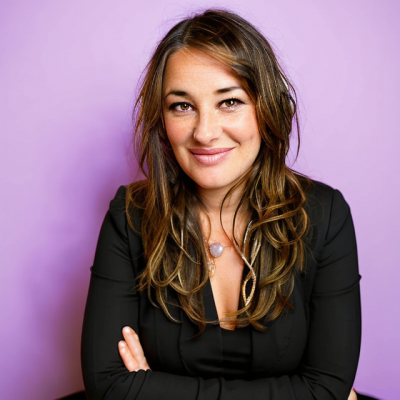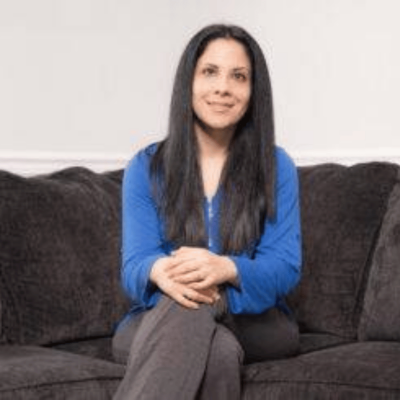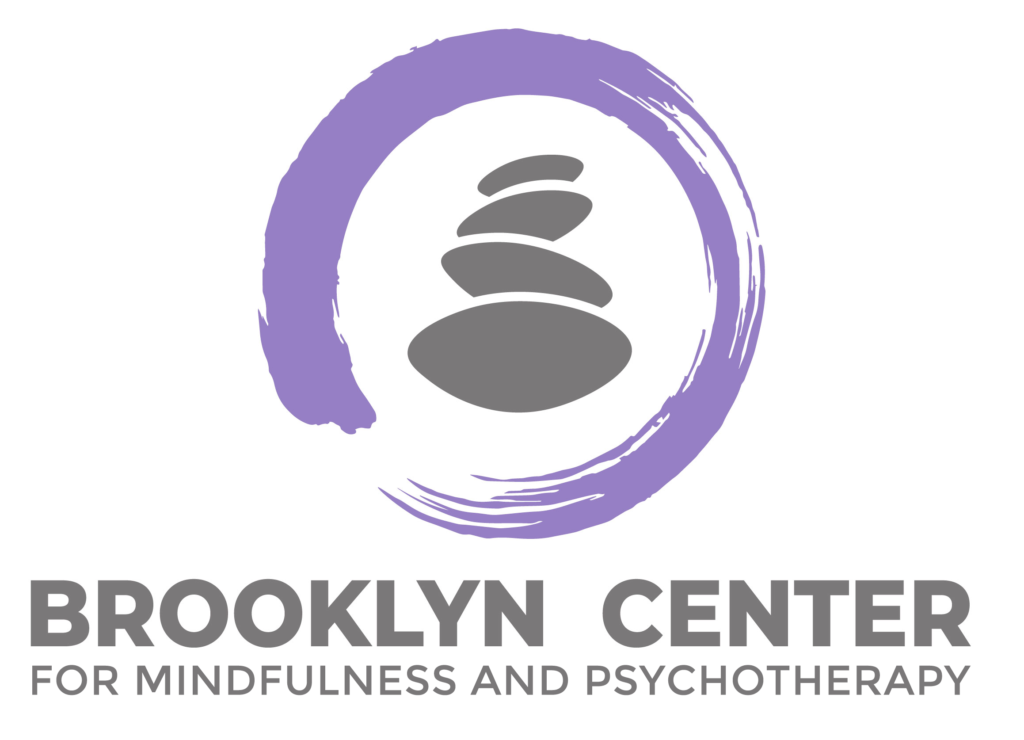OCD Therapist NYC
- Home
- Obsessive Compulsive Disorder New York
About Obsessive Compulsive Disorder
Obsessive-Compulsive Disorder (OCD) is a complex mental health condition characterized by intrusive thoughts and repetitive behaviors that can significantly impact daily life. People who experience OCD often have compulsions, which can include repeating words. People who experience OCD often have obsessions (intrusive, scary thoughts) that lead to repetitive behaviors called compulsions, which can include actions such as excessive cleaning or checking. OCD can involve time consuming rituals but OCD therapy works fast: freeing yourself from fear and obsessions and compulsions!
A common treatment for OCD is a technique called exposure therapy and exposure and response prevention (ERP). Selective serotonin reuptake inhibitors (SSRIs) are commonly prescribed medications to help manage OCD symptoms, alongside cognitive-behavioral therapy CBT, particularly ERP is gold standard OCD therapy. This therapeutic approach involves gradually exposing individuals to feared situations or objects while refraining from engaging in compulsive behaviors. By confronting their fears in a controlled setting, patients can learn to resist the urge to perform compulsions, leading to reduced anxiety and improved well-being.
Accordion Content
Obsessive-compulsive disorder (OCD) is a specific form of anxiety disorder characterized by obsessions and compulsions. These compulsions, which are often time-consuming, include repetitive behaviors or mental acts performed to reduce the anxiety associated with the obsessions. Symptoms of OCD can lead to significant difficulties in daily life, affecting both children and adults. Individuals suffering from OCD may experience an overwhelming fear of losing control and engage in compulsions to manage this fear. A collaborative approach to treatment, which includes medication and therapy, is often necessary to effectively manage the disorder. Drugs prescribed can help reduce the severity of the symptoms, while therapeutic interventions aim to address the underlying issues. By addressing both the psychological and physiological aspects of OCD, this approach helps individuals regain control and improve their quality of life.
Obsessive Compulsive Disorder is a mental health disorder categorized by obsessions and compulsions. Often referred to as the “DOUBT DISORDER” because those with OCD want to know something for 100% certainty when this isn’t possible.
Obsessions are intrusive thoughts, frightening images that trigger overwhelming anxiety. Compulsions are behaviors an individual engages to rid themselves or naturalize the anxiety. If you have noticed that it takes you longer to get ready in the morning and leave your house because of rituals or routines that you just “have to do “than you may have OCD.
The obsessions need to be more pronounced and cause significant distress in order to be categorized as “obsessions”. If you find that most of your day is made up of intrusive thoughts and worrying about intrusive thoughts then it may be helpful for you to get screened for OCD.
We work with adults, teens and preteens to help liberate from fear.
Here are some common OCD types:

Contamination OCD
When you think of OCD, most will consider this subtype. Obsessions could include fears around germs, bodily fluid, dirt, household cleaners, and environmental contamination. Compulsions can include excessive cleaning, avoiding places, or excessive hand washing.
Harm OCD
This subtype of OCD is consumed with scary and persistent fears around harming others, causing individuals to avoid certain items, situations, or places. For example, they might avoid being around a knife, fearing thoughts like, “What if I stab my friend with this knife?” They might also avoid movies, news, or articles that describe harm, worrying, “Did I just enjoy reading/watching that? Am I a murderer?”
Compulsions may involve seeking reassurance from those around them with questions like, “Am I a good person? Would I do this?” Avoidance, as mentioned above, is a compulsion. They may also engage in checking behaviors to ensure they don’t have harmful thoughts or haven’t actually done something harmful. Ritual behavior may include confessing everything and anything they did.


Sexual Orientation OCD
This subtype is categorized around sexual thoughts and sexuality. For example, intrusive thoughts around whether or not you could be a homosexual: “I just smiled at this person. Does that mean I’m gay?”
Because OCD is the DOUBT disorder, you may feel you need to know sexual orientation with 100% certainty. Thus, leads to compulsions of avoiding (avoiding speaking to friends, people). Another compulsion is checking physical sensations to see if you are aroused.
The obsessions and compulsions are nonstop and distressing!
We understand that struggling with obsessive thoughts and compulsive behaviors related to sexual orientation can be difficult and overwhelming. That’s why we approach each patient with empathy and understanding, recognizing the unique and individual needs of each person.
Pedophile OCD
This subtype of OCD consumes individuals with intrusive thoughts about whether or not they are a pedophile and have an attraction to or have harmed children. These individuals are not pedophiles, but their intense fear and preoccupation with this possibility cause severe anxiety.
Compulsions include avoiding movies with children, playgrounds, and children altogether. Just as someone with harm OCD isn’t a murderer despite their fears, individuals with this subtype are not pedophiles, but the distressing thoughts persist.


Relationship OCD
For those preoccupied with thoughts around relationships and seeking certainty, OCD can manifest in constantly questioning, “Am I still in love?” or “Do they still love me?” The obsessions won’t let you go about your day because you feel compelled to know your feelings and their feelings about the relationship. Compulsions may include seeking constant reassurance from your partner or others. Another common compulsion is making lists and mentally tracking reasons you do love the person. These obsessions and compulsions cause significant anxiety and take up most of the day. OCD therapy and at times medications work!
“Just right” OCD
“Just right” OCD involves believing something is wrong and engaging in rituals to make it feel right. An example could be repeatedly moving furniture until it feels perfectly positioned. Similarly, someone might feel compelled to express themselves perfectly, leading them to reread emails for hours before sending them. This subtype is characterized by a desire for perfectionism, even when perfectionism isn’t attainable. The compulsions and obsessions associated with “just right” OCD can be incredibly time-consuming and distressing, significantly impacting daily life.


Pure-O OCD
When an individual experiences pure obsessions without visible compulsions or rituals, the condition is often referred to as “pure O” OCD. The obsessions tend to be intrusive, inappropriate, distressing, and unwanted thoughts or images. These are generally followed by mental compulsions such as rumination and reassurance seeking, where the individual constantly analyzes and questions their thoughts in an attempt to find relief. Although the compulsions are not outwardly visible, they can be just as disruptive and distressing as physical rituals.
Scrupulosity OCD
This subtype is consumed with religious or moral beliefs. Obsessions concerning sin, blasphemy, going to hell, being immoral, punishment and death. Compulsions may be excessive trips to confessions, reassurance, self-sacrifice, and making pacts with God. Like with any OCD, the obsessions cause tremendous distress, consuming and anxiety provoking.


Exposure and Response Prevention
Exposure and Response Prevention gradually exposes to the things that are scary in order to desensitize. Desensitization comes from gradually being introduced to the things or experiences which evoke anxiety which is called exposure therapy. Also, therapy addresses the behaviors (called compulsions) that worsen OCD. In a nutshell, the more you do what you are fearful of, the least scary it becomes. To learn more about ERP and OCD therapy, click HERE.
FAQS about working with an OCD specialist
OCD include body focused repetitive behaviors. Body-focused repetitive behaviors (BFRBs) are compulsive behaviors where individuals repeatedly engage in activities like hair pulling, skin picking, or nail biting, often causing physical damage and emotional distress. These behaviors can interfere significantly with daily life and self-esteem. At Brooklyn Mindful, we use a combination of cognitive behavioral strategies with Habit Reversal Therapy to help our clients reduce these undesirable feelings and actions.
Habit Reversal Therapy (HRT) is a widely used and effective treatment for BFRBs. HRT involves increasing awareness of the behavior, identifying triggers, and developing competing responses to replace the harmful behavior. The therapy also includes techniques to manage stress and improve self-control, helping individuals reduce or eliminate their BFRBs and improve their overall quality of life.
Evidence based counseling strategies and at times medications can eliminate BFRB
When seeking treatment for OCD, various types of mental health professionals can offer effective therapy. Psychiatrists are medical doctors who can prescribe medication to manage OCD symptoms. Psychologists, including clinical psychologists, specialize in psychotherapy and can provide evidence-based therapies like CBT and exposure and response prevention (ERP). Licensed clinical social workers (LCSWs) and licensed professional counselors (LPCs) offer counseling services, including Cognitive behavioral therapy CBT and other therapeutic modalities. It’s essential to consider not only the credentials but also the therapist’s experience and approach. Ultimately, finding a therapist with whom you feel comfortable and who specializes in treating OCD is crucial for successful therapy.
The most appropriate therapy for OCD is typically CBT, specifically desensitization. ERP involves gradually exposing individuals to their obsessive thoughts and compulsive behaviors while refraining from engaging in the compulsions. This helps reduce anxiety and teaches individuals to tolerate their distress without resorting to compulsive rituals. Another effective approach is acceptance and commitment therapy (ACT), which focuses on accepting uncomfortable thoughts and feelings while committing to actions aligned with personal values. At our practice, our therapists specialize in evidence-based modalities such as CBT, ERP, and ACT, tailoring treatment to each client’s unique needs and preferences. We prioritize creating a supportive and compassionate therapeutic environment to help individuals overcome OCD and live a fulfilling life.
We treat OCD, mood disorders, panic disorder, tic disorders, skin picking, compulsive behavior and anxiety-related conditions. We also treat body focused repetitive behaviors (BFRB) such as tic disorders, trichotillomania (hair picking), dermatillomania (skin picking) using Habit Reversal therapy (HRT). Treatment involves a multifaceted approach that combines cognitive therapy, ERP, medication treatment, to treat obsessive compulsive disorder symptoms and Body Focused Repetitive behaviors.
Cognitive therapy and mindfulness based therapy is an effective treatment in helping individuals identify and reframe negative thought patterns and malfunctioning or compulsive behavior that contribute to their symptoms. Medications, such as selective serotonin reuptake inhibitors (SSRIs) or benzodiazepines, can provide significant relief by balancing brain chemistry and reducing symptoms. Talk therapy, which includes techniques such as CBT and psychodynamic therapy, offers a supportive environment where patients can explore their emotions, understand their triggers, and develop coping strategies. This comprehensive approach aims to address both the physiological and psychological aspects of these disorders, providing a holistic path to recovery and improved mental health.
OCD symptoms can flare up due to various factors, including stress, changes in routine, trauma, and hormonal fluctuations. Additionally, life events such as significant transitions or heightened anxiety can exacerbate obsessive thoughts and compulsive behaviors. Environmental triggers, such as clutter or situations that evoke uncertainty, can also contribute to symptom escalation. Engaging in avoidance to alleviate discomfort may temporarily relieve anxiety but ultimately reinforces OCD patterns. If you’re experiencing a flare-up of OCD symptoms, it may be beneficial to seek therapy to gain specialized insight into your specific triggers and develop effective coping strategies. Our therapists specialize in treating OCD and can provide tailored support to help you manage symptoms and improve your quality of life.
Get the Best OCD Treatment and Support in NYC - Contact Brooklyn Mindful Today
At Brooklyn Mindful in NYC, we understand just how challenging mental health issues and obsessive-compulsive disorder (OCD) and related disorders can be. That’s why we’re committed to providing the best possible treatment and support to patients in the New York area. Our team of licensed clinical therapists and psychologists are highly trained and experienced in treating OCD and related disorders. We use a blend of cutting-edge research, proven techniques, and a caring approach to help our patients overcome their OCD symptoms. Whether you prefer individual therapy, group therapy, or a combination of both, we have the expertise and resources to design a personalized treatment plan that works for you.

We believe that support and community play a crucial role in the treatment of OCD and related disorders. That’s why we offer a variety of support groups and resources for our patients, in addition to individual therapy services. Don’t let OCD continue to hold you back. Contact us today to learn more about how we can help you find hope and support on your path to recovery.
3 Top-Rated OCD Therapists in Brooklyn
1. Liza Mordkovich, LCSW

- Education: Masters degrees in art therapy and counseling, masters in social work with a concentration on mental health
- Services: Individual psychotherapy, biopsychosocial assessments, coaching
- Specializations: Perinatal mental health, anxiety, sleep issues, obsessive compulsive disorder, phobias, panic disorder, personality disorders, couples therapy, depression, trauma/grief and ptsd, ADHD
- Therapeutic Orientation: Cognitive behavioral therapy, acceptance and commitment therapy, dialectical behavioral therapy, exposure and response prevention for OCD, prolonged exposure, cognitive processing therapy
- Years in Practice: 20 years in practice and 12 years in private practice.
- Learn more about Liza Here
2. Gabrielle Jakob LMHC

- Education: Masters in mental health counseling
- Services: Psychotherapy for individuals, couples and families and coaching.
- Specializations: Couples therapy, anxiety disorders, perinatal mental health, depression, trauma, ADHD.
- Therapeutic Orientation: Cognitive behavioral therapy, Gottman level 3, solution focused psychotherapy.
- Years in Practice: 15 years in practice
- Learn more about Gabrielle Here
3. Patricia Giarraffa, MHC-LP

- Education: Masters in school counseling and masters in mental health counseling
- Services: Psychotherapy for individuals, teens, couples and family.
- Specializations: Anxiety disorders, depression, teens and children, parenting support, obsessive compulsive disorder.
- Therapeutic Orientation: Cognitive behavioral therapy, dialectical behavioral therapy and exposure and response prevention.
- Years in Practice: 3 years in practice
- Learn more about Patricia Here


